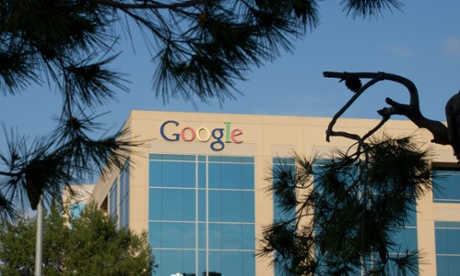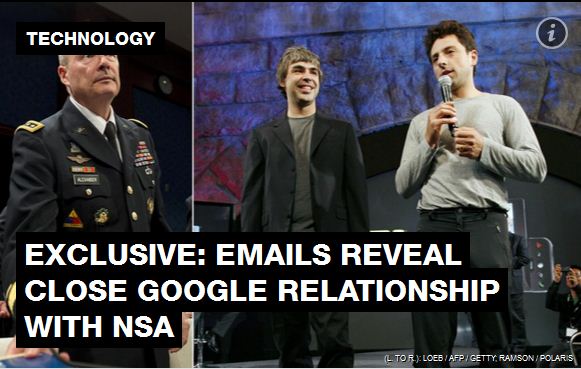On the eve of the much-anticipated retail focused sale and discount event, Black Friday, consumers in key regions across Africa, such as Kenya, are warned by network security experts to be vigilant. Black Friday and Cyber Monday are acknowledged as two of the busiest shopping days of the year, involving contribution by social networks and ecommerce websites. Global network security company Fortinet, and its research division FortiGuard Labs, are warning shoppers to be wary. The Company has issued important tips than can keep consumers safe, both when shopping online or…
Read MoreCategory: SOCIAL MEDIA
Facebook secretly working on new website called ‘Facebook at Work’ for office use
London (AFP) – Facebook is preparing a new office version of its social networking site to compete with other sites like LinkedIn, the Financial Times reported on Monday. “Facebook is secretly working on a new website called ‘Facebook at Work’” that would allow users to “chat with colleagues, connect with professional contacts and collaborate over documents”, it said. Facebook last month reported its quarterly profit nearly doubled to $802 million (640 million euros) but saw its stock pounded after outlining a plan to invest heavily in the future instead of…
Read MoreUnauthorized software is proliferating in the workplace, What apps are your employees using?
Unauthorized cloud-based software is proliferating in the workplace, causing regulatory and security challenges for companies that often don’t even know their employees are using it. Some of the services are well known, such as Dropbox, for file sharing, and the multipurpose social-media site Facebook . But at some companies, employees are tapping hundreds of cloud-based apps to perform functions ranging from Web conferencing to conducting surveys to sharing photos. Skyhigh Networks, a provider of services that track and control cloud apps, surveyed more than 350 large companies this year and…
Read MoreFacebook unprecedented reveals search warrant of hundreds of accounts
Facebook revealed that since last summer it’s been fighting a court order that required it to disclose social-media information involving hundreds of people. “This unprecedented request is by far the largest we’ve ever received — by a magnitude of more than ten — and we have argued that it was unconstitutional from the start,” Chris Sonderby, Facebook’s deputy general counsel, wrote in a statement Thursday. The situation raises concerns over privacy in the digital age, when much of a person’s sensitive information is often available online and on mobile devices.…
Read MoreGoogle launches webform for ‘right to be forgotten’ removal requests in response to EU court ruling
Google has launched a webpage where European citizens can request that links to information about them be taken off search results, the first step to comply with a court ruling affirming the “right to be forgotten”. The company, which processes more than 90% of all web searches in Europe, has made available a webform through which people can submit their requests but has stopped short of specifying when it will remove links that meet the criteria for being taken down. Google said it had convened a committee of senior executives…
Read MoreRight to Be Forgotten? Europe’s Orwellian Internet Time Warp
By David Kirkpatrick When the European Court of Justice—the rough equivalent of the U.S. Supreme Court—ruled that individuals have the “Right to Be Forgotten,” it took a dangerous step backward. Among many potential negative consequences, it could contribute to slowing global economic growth. The court endorsed a profoundly a historical, anti-technological argument about the supposed rights of individuals. The plaintiff, Mario Costeja Gonzalez, is a Spanish citizen who was joined by a Spanish government agency in arguing that Google ought not link to a 1998 newspaper mention of a real estate…
Read MoreEmail exchanges between NSA and Google executives reveal far cozier relationship
Email exchanges between National Security Agency Director Gen. Keith Alexander and Google executives Sergey Brin and Eric Schmidt suggest a far cozier working relationship between some tech firms and the U.S. government than was implied by Silicon Valley brass after last year’s revelations about NSA spying. Disclosures by former NSA contractor Edward Snowden about the agency’s vast capability for spying on Americans’ electronic communications prompted a number of tech executives whose firms cooperated with the government to insist they had done so only when compelled by a court of law.…
Read MoreHeartbleed bug hit list, Why you need to change your password now
An encryption flaw called the Heartbleed bug is already being called one of the biggest security threats the Internet has ever seen. The bug has affected many popular websites and services — ones you might use every day, like Gmail and Facebook — and could have quietly exposed your sensitive account information (such as passwords and credit card numbers) over the past two years. But it hasn’t always been clear which sites have been affected. Mashable reached out to various companies included on a long list of websites that could…
Read MoreTwitter Ban :The Turkish media experiment
Countries who seek to gain control over their people through the internet have their own agendas. They are in search of larger governmental control or even censorship online. — Marietje Schaake, European Parliament Member, Feb 2014 Politics, claimed the German chancellor Otto von Bismarck, is the art of the possible. Exceed that limit, and you are bound to make a hash of it. By all means, care to dream, but be aware of limitations. The Turkish government, led by Recep Tayyip Erdoğan, has given that sentiment substance. Ahead of the…
Read MoreHow Facebook will have to radically transform itself in order to justify buying WhatsApp
There has been endless high-quality discussion about why Facebook was willing to pay more than what half of the S&P 500 companies are worth for WhatsApp. My biased distillation of the consensus is, basically, Facebook wanted to keep WhatsApp out of the clutches of Google, and the sale was in stock at a time when Facebook’s share price is at an all-time high, so Facebook didn’t have much to lose. Or you might choose to believe Facebook’s stated reason, which is that WhatsApp could go to a billion users and that, with the…
Read More






